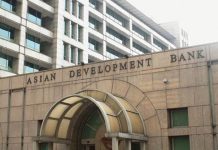Foreign Desk Report
NEW YORK: Pakistan has called for giving the world’s under-represented regions the opportunity to serve in an expanded United Nations Security Council to make the 15-member body more representative, transparent and accountable as it confronts increasingly complex challenges.
Speaking in the stalled Intergovernmental Negotiations (IGN) on Security Council reform, Ambassador Munir Akram said that the objective of the exercise was to enhance the Council’s credibility and legitimacy.
Progress in the negotiations is held up as India, Brazil, Germany and Japan, known as ‘Group of Four’, have remained inflexible in their push for permanent seats in an enlarged Security Council, while the Italy/Pakistan-led Uniting for Consensus (UfC) group opposes any additional permanent members, saying it would not make the Council more effective. The Security Council is currently composed of five permanent members Britain, China, France, Russia and the United States and 10 non-permanent members elected to serve for two years.
In his remarks, the Pakistani envoy said that the Security Council’s membership and size must be expanded so that all UN Member States have the opportunity to serve on the Council.
“Every seat added to the Council must demonstratively contribute to enhancing the ‘representativeness’ of Council,” he added.
In this regard, Ambassador Akram said that the UfC’s proposal for expansion in the non-permanent category envisages larger allocations of seats for the under-represented regions of Africa, Asia-Pacific and Latin America.
On the other side, he said that the G-4’s proposal to add 6 new permanent seats and 4 non-permanent members would only benefit them.
“The representation of the rest of general membership, excluding the existing and new permanent members (i.e. 182 States), would remain at 8% exactly where we are at present,” the Pakistani envoy explained. “The Council’s expansion would thus be for the benefit of only the 6 additional permanent members,” he added.
The Pakistani envoy took issue with the progressive erosion of the ‘open’ culture of the Council’s work by the ever more frequent ‘closed’ meetings, saying such meetings were not provided for under the rules of procedure.




